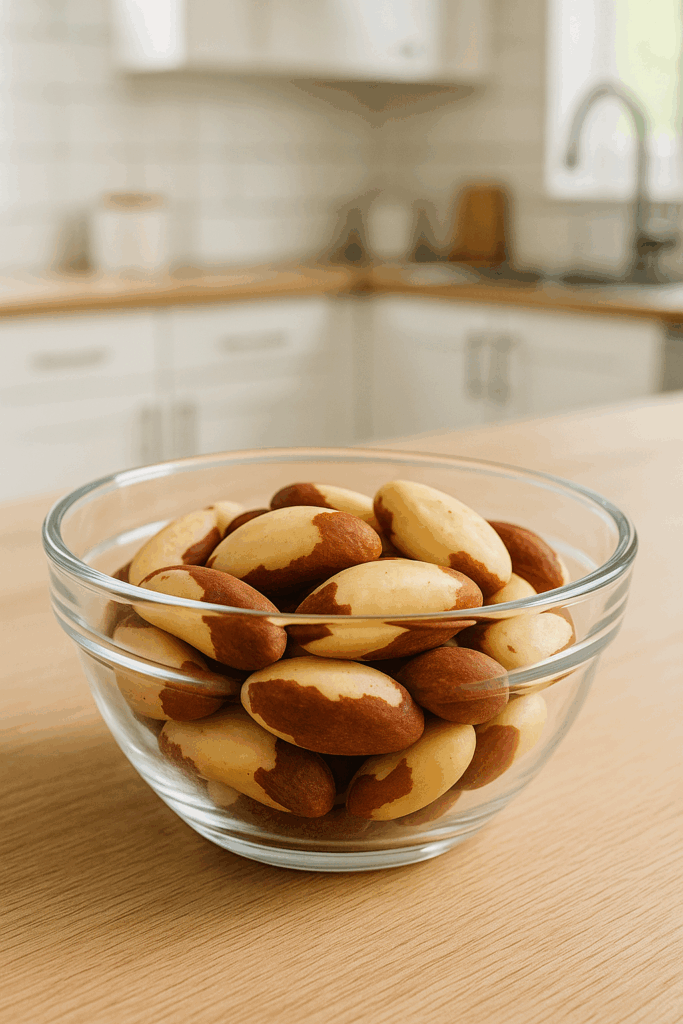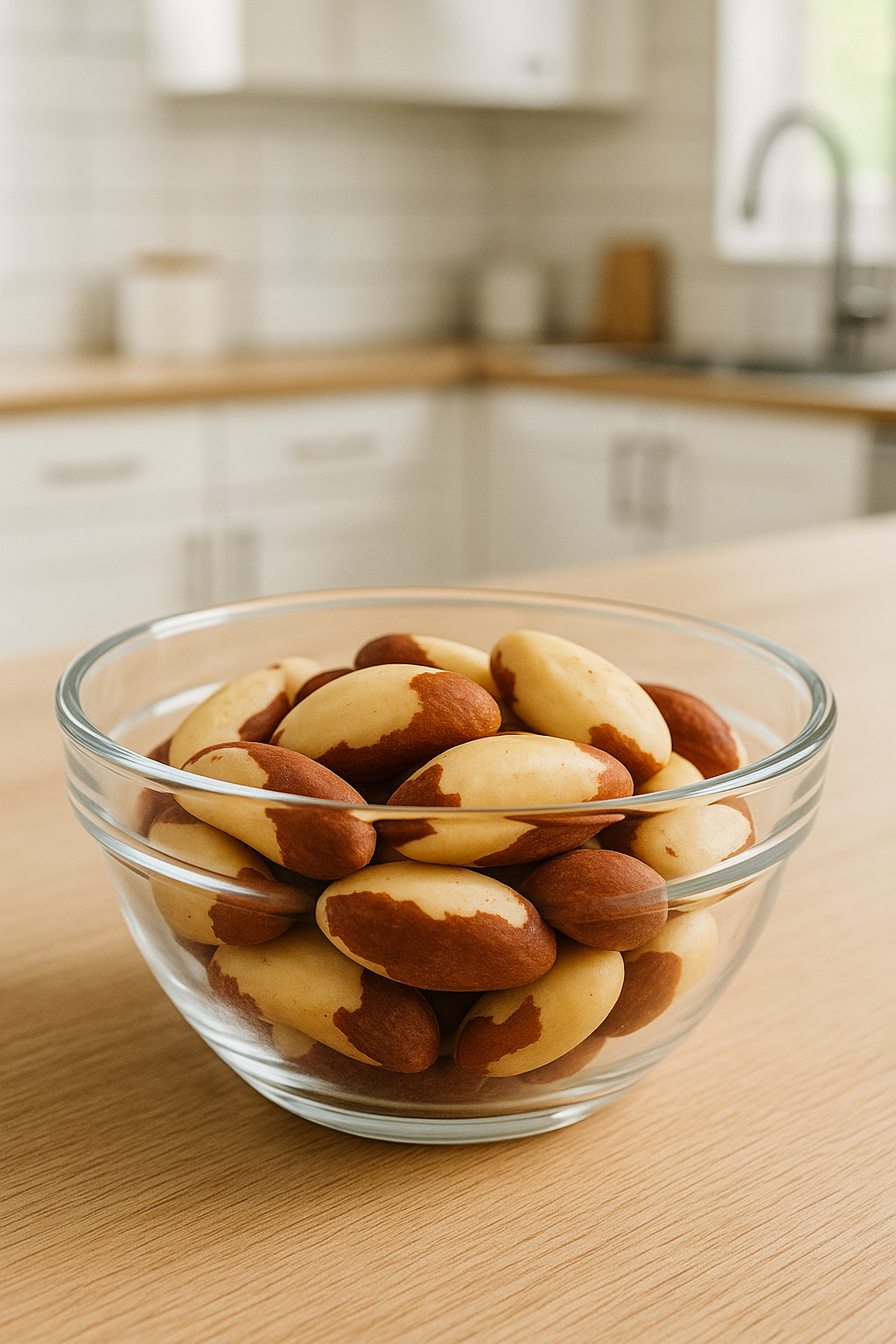Have you ever heard that Brazil nuts are rich in selenium but should be eaten carefully? While they may offer powerful antioxidant and thyroid-supporting benefits, their quality and freshness matter just as much as portion size. Here are key things to consider when selecting and storing them safely.

1. Check for Freshness and Smell
Brazil nuts contain high levels of healthy fats that may turn rancid if stored poorly.
- Choose nuts that smell mild and nutty — avoid sour or paint-like odors.
- Rancid nuts may lose nutrients and could irritate digestion.
- If buying in bulk, ask when the batch was opened or roasted.
2. Look at the Color and Texture
Visual signs may help you identify freshness more easily.
- Fresh Brazil nuts should have a light beige color and firm, smooth surface.
- Dark spots, oiliness, or powdery residue may indicate moisture damage or mold.
- Avoid broken or shriveled pieces, which could mean old or poorly stored stock.
3. Choose Unsalted and Unflavored Options
Added salt or sugar may mask staleness and increase sodium or calorie content.
- Plain, raw, or lightly roasted nuts preserve the natural nutrient profile better.
- Flavor coatings could introduce additives or oils that affect shelf life.
- Organic certification may help ensure minimal chemical residue.
4. Store Properly After Purchase
Proper storage may help protect delicate oils from oxidation and spoilage.
- Keep Brazil nuts in an airtight container in a cool, dark place.
- Refrigeration or freezing could help extend freshness, especially in warm climates.
- Avoid exposure to moisture — even a little humidity could cause mold growth.
5. Be Mindful of Portion Size
Brazil nuts are extremely high in selenium, an essential but potent mineral.
- One to two nuts per day may provide enough selenium for most adults.
- Excessive intake over time could lead to symptoms of selenium toxicity, such as hair loss or fatigue.
- Children or individuals with thyroid conditions should consult a healthcare provider before regular use.
🌟 Conclusion
Brazil nuts may offer exceptional nutrition when chosen and stored wisely. Paying attention to freshness, color, and portion size could help you enjoy their antioxidant and selenium benefits safely, without the risk of overconsumption or spoilage.
References and Further Reading
- National Institutes of Health — Selenium and Health
- USDA FoodData Central — Brazil Nut Composition
- Harvard Health Publishing — Safe Intake of Nuts and Seeds
Disclaimer
This article is for informational purposes only and not medical advice. Individual selenium needs and nut tolerance may vary depending on diet and health status.
